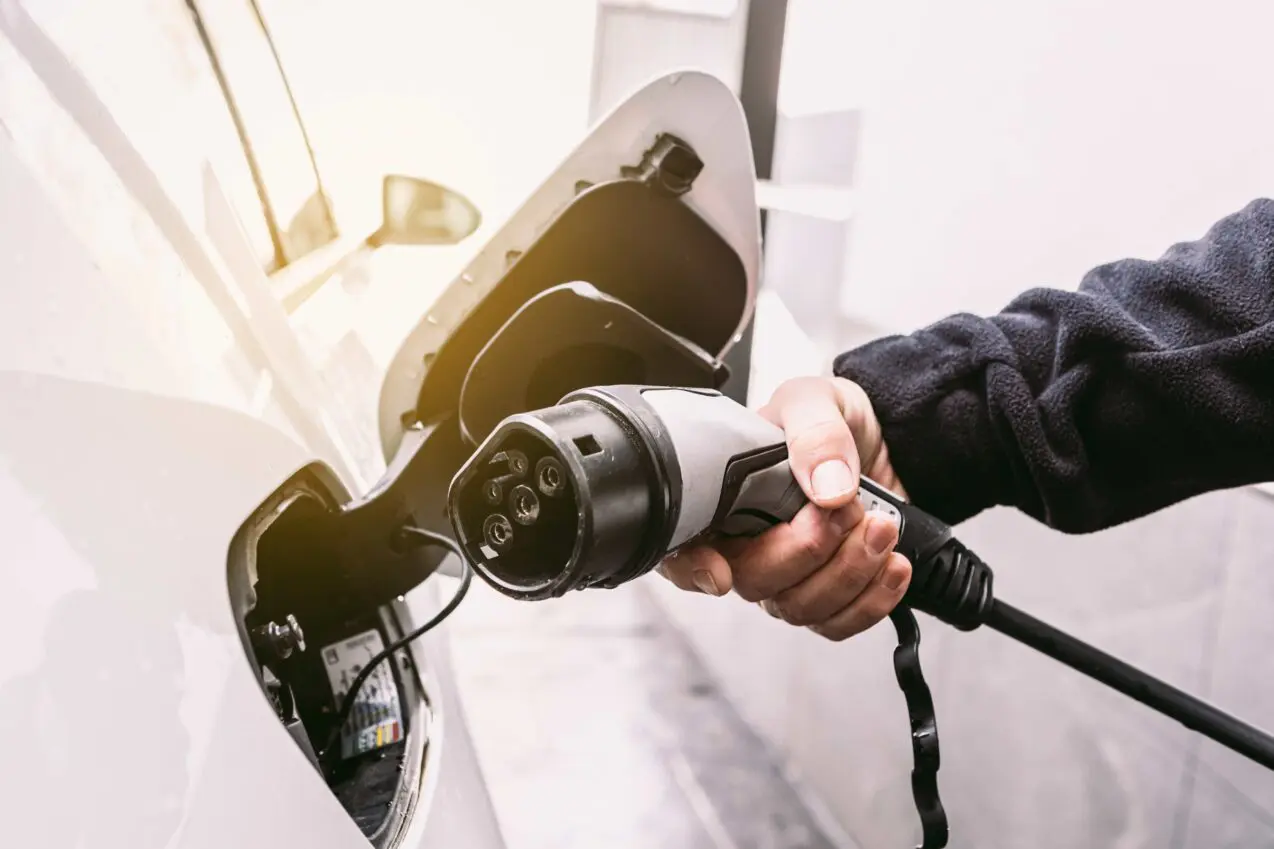California is racing towards electric trucks, with mixed results so far in getting more companies on the road and building places to charge them. The state's ambitious zero-emission vehicle goals are proving tough to meet on schedule.
A massive new truck charging station in Lynwood shows how far things have come. This place opened in March and can charge up to 200 trucks at once with its 65 chargers. Maersk's electric trucks use it to power up as they haul cargo along the 710 to the Los Angeles and Long Beach ports.
"This is exactly what trucking companies have been asking for," said Jonathan Colbert from Voltera, who built the charging depot.
California passed a game-changing law last year forcing truckers to switch to electric or hydrogen trucks in the coming years. Port trucks have to ditch diesel completely by 2035.
CARB says big trucks make up just 6% of vehicles but emit almost half the smog-causing pollution and 20% of greenhouse gases.
Bruce Tuter, a supervisor with CARB, emphasized the critical nature of this transition. "Diesel particulates are highly toxic," he said. "It's the most toxic air contaminant that we know of. So, it's absolutely critical that we get cleaner and cleaner."
Former long-haul diesel truck driver Kenneth Phillips, who now works for electric trucking company BYD, noted the benefits for drivers. "That takes a toll on your body," Phillips said, referring to the noise and fumes of diesel trucks. He added that electric trucks offer comparable performance with a smoother, quieter ride.
Despite progress, some constrains remain in building out the necessary charging infrastructure. The state estimates a need for at least 114,500 chargers by 2030 to support 157,000 electric or hydrogen-fueled medium- and heavy-duty trucks.
Colbert identified two main obstacles: permitting and utility interconnection. "We're asking for, in some situations, more than a skyscraper's worth of power in an acre or two-acre footprint," he explained. Upgrading equipment to handle the required voltage can delay projects by months or even years.
Jeff Monford, a spokesperson for Southern California Edison, noted that while the utility has completed over 80 projects supporting more than 2,000 medium- and heavy-duty vehicles, each project presents unique challenges.
Political uncertainty surrounding the presidential election has impacted this transition. The federal Environmental Protection Agency has yet to grant a waiver approving California's new truck electrification law.
Despite these challenges, major industry players remain committed to electrification. "I don't think that it benefits any administration to back down off of what's coming already," Colbert said.
As California continues to lead the charge in reducing emissions from the trucking sector, the success of projects like the Lynwood charging depot offers a glimpse of the potential for a cleaner, more sustainable future in freight transportation.
Related Articles:
1. US nonprofit to spend $250 million on electric trucks to lease at California ports

 Putin says there is no time to sign new Ukraine gas transit deal this year
Putin says there is no time to sign new Ukraine gas transit deal this year
 Texas man arrested for allegedly threatening ‘to show up at’ a Capital One ‘with a machete and gasoline’ over debt issues
Texas man arrested for allegedly threatening ‘to show up at’ a Capital One ‘with a machete and gasoline’ over debt issues
 Marianne Williamson announces run for DNC chair
Marianne Williamson announces run for DNC chair
 Manmohan Singh, India's reluctant prime minister, dies aged 92
Manmohan Singh, India's reluctant prime minister, dies aged 92
 India's former PM Manmohan Singh dies aged 92
India's former PM Manmohan Singh dies aged 92
 India's former prime minister Manmohan Singh, architect of economic reforms, dies aged 92
India's former prime minister Manmohan Singh, architect of economic reforms, dies aged 92
 Detroit Red Wings fire coach Derek Lalonde, name Todd McLellan as his replacement
Detroit Red Wings fire coach Derek Lalonde, name Todd McLellan as his replacement
 Powerful thunderstorms rumble across Texas, delaying holiday travel
Powerful thunderstorms rumble across Texas, delaying holiday travel
 Firefighters hoist Santa, superheroes to wave to patients inside Children's Wisconsin on Christmas
Firefighters hoist Santa, superheroes to wave to patients inside Children's Wisconsin on Christmas
 California's ambitious electric trucks charging goals face challenges, but progress is evident with new large-scale charging depots.
California's ambitious electric trucks charging goals face challenges, but progress is evident with new large-scale charging depots. 






